

| Cruise Region : Persian Gulf, UAE / Persian Gulf |
| Company : Oceania Cruises |
| Ship : VISTA |
| Journey Start : Wed 13 May 2026 |
| Journey End : Tue 02 Jun 2026 |
| Count Nights : 20 nights |
| Day | Date | Port | Arrival | Departure |
|---|---|---|---|---|
| 1 | 13.05 Wed | Dubai / UAE | 07:00 | |
| 2 | 14.05 Thu | Dubai / UAE | 13:00 | |
| 3 | 15.05 Fri | Muscat / Oman | 09:00 | 16:00 |
| 4 | 16.05 Sat | Day at sea / Sea | ||
| 5 | 17.05 Sun | Day at sea / Sea | ||
| 6 | 18.05 Mon | Day at sea / Sea | ||
| 7 | 19.05 Tue | Day at sea / Sea | ||
| 8 | 20.05 Wed | Jeddah / Saudi Arabia | 10:00 | 20:00 |
| 9 | 21.05 Thu | Day at sea / Sea | ||
| 10 | 22.05 Fri | Luxor / Egypt | 06:00 | |
| 11 | 23.05 Sat | Luxor / Egypt | 21:00 | |
| 12 | 24.05 Sun | Day at sea / Sea | ||
| 13 | 25.05 Mon | Day at sea / Sea | ||
| 14 | 26.05 Tue | Day at sea / Sea | ||
| 15 | 27.05 Wed | Santorini, Cyclades / Greece | 07:00 | 19:00 |
| 16 | 28.05 Thu | Day at sea / Sea | ||
| 17 | 29.05 Fri | Messina, o. Sicily / Italy | 07:00 | 18:00 |
| 18 | 30.05 Sat | SORRENTOCAPRI | 07:00 | 17:00 |
| 19 | 31.05 Sun | OLBIA PORTO CERVO | 08:00 | 16:00 |
| 20 | 1.06 Mon | Port of Mahon / Spain | 10:00 | 19:00 |
| 21 | 2.06 Tue | Barcelona / Spain | 07:00 | 17:30 |
Your World Included
With Your World Included, you’ll enjoy a wide array of included amenities for the ultimate comfort and value in ultra-premium cruising.
Unforgettable dining experiences at a variety of exquisite restaurants — all at no extra charge.
Complimentary specialty coffees, sodas, freshly pressed juices, and still and sparkling Vero Water® served throughout the ship.
Unlimited free Wi-Fi available in your suite, stateroom, and all public areas.
In-room dining with a superb variety of hot and cold selections.
Smoothies, milkshakes, gelato, and signature Humphry Slocombe ice cream — always included.
Group fitness classes at Aquamar® Spa + Vitality Center are complimentary.
Gratuities are included for your convenience.
Laundry is free for all guests.
With complimentary self-service launderettes on board, plus laundry and pressing services for Concierge and Suite categories, you’ll always look your finest.
Along with our hallmark personalized service, you’ll enjoy an enriching cruise experience with no hidden costs or nickel-and-diming.
Elevate Your Experience
Concierge Level Veranda Staterooms offer an unrivaled combination of luxury, privilege, and value. A wealth of amenities and exclusive benefits elevate your experience to the sublime — from in-room dining selections from The Grand Dining Room and complimentary laundry services to unlimited access to the Aquamar Spa Terrace.
On board Oceania Marina and Oceania Riviera, you’ll also enjoy the services of a dedicated Concierge and exclusive access to the private Concierge Lounge.
Located in the most desired areas of the ship, Concierge Level Veranda Staterooms are far more than just staterooms — they are an experience in themselves.
Concierge Level Veranda — Exclusive Privileges
Expanded in-room dining menu for lunch and dinner from The Grand Dining Room
Laundry service — up to 3 bags per stateroom
Exclusive key-card access to the private Concierge Lounge aboard Oceania Marina, Oceania Riviera, Oceania Vista, and Oceania Allura, featuring complimentary beverages, coffees, snacks, and the services of a dedicated Concierge
Welcome bottle of fine Italian Prosecco
Priority online reservations for specialty restaurants
Unlimited access to the Aquamar Spa Terrace
Oceania Cruises logo tote bag
Cashmere lap blankets — perfect for relaxing or snuggling
Pressing of garments upon embarkation
Complimentary shoeshine service
Deposit and Payments – Oceania Cruises
General Deposit:
For Owner’s, Vista, and Oceania Suites, a deposit of 20% of the cruise fare per person is required.
For all other suite/stateroom categories, the deposit is $500 per person.
For Grand Voyages, the deposit is $1,500 per person.
Deposit and Final Payment Deadlines:
Bookings more than 150 days from sailing:
Deposit 20% for Owner’s, Vista, and Oceania Suites and $500 for all other categories is required within 5 days of booking.
Bookings 90–120 days from sailing:
Full payment required within 3 days of booking.
Bookings 0–90 days from sailing:
Full payment due on the day of booking.
Important:
Bookings that are not deposited or paid in full according to this schedule will be automatically cancelled.
Unless otherwise noted, final payment must be received by Oceania Cruises 150 days prior to departure for cruises less than 15 days, and 150 days for cruises 15 days or longer.
Oceania Cruises reserves the right to cancel any booking not fully paid at the time of final payment.
Additional Information:
Passport details and special onboard service requests are due at final payment.
Payment may be made by personal check, American Express, Discover, MasterCard, or Visa.
For convenience, final payment may be automatically charged to the credit card used for the initial deposit.
Oceania Cruises is not responsible for foreign currency or transaction fees independently charged by issuing banks. These fees do not benefit Oceania Cruises.
Third-party credit card payments are accepted only with valid authorization from the cardholder.
Deposit and Payment – 180-Day Voyages
For 180-day voyages, a deposit of 20% of the cruise fare per person for all suites and staterooms is required within 7 days of booking.
Final payment must be received no later than 181 days prior to departure, along with passport details and any special onboard service requests.
Otherwise, the booking may be immediately cancelled, and applicable penalties will apply.
Oceania Cruises accepts payment for reservations by credit/debit card or bank transfer.
Unfortunately, personal checks are not accepted.
Credit/Debit Cards:
American Express, Visa, and Mastercard are accepted.
Please note: Oceania Cruises assumes no responsibility for foreign currency/transaction processing fees assessed by your issuing bank.
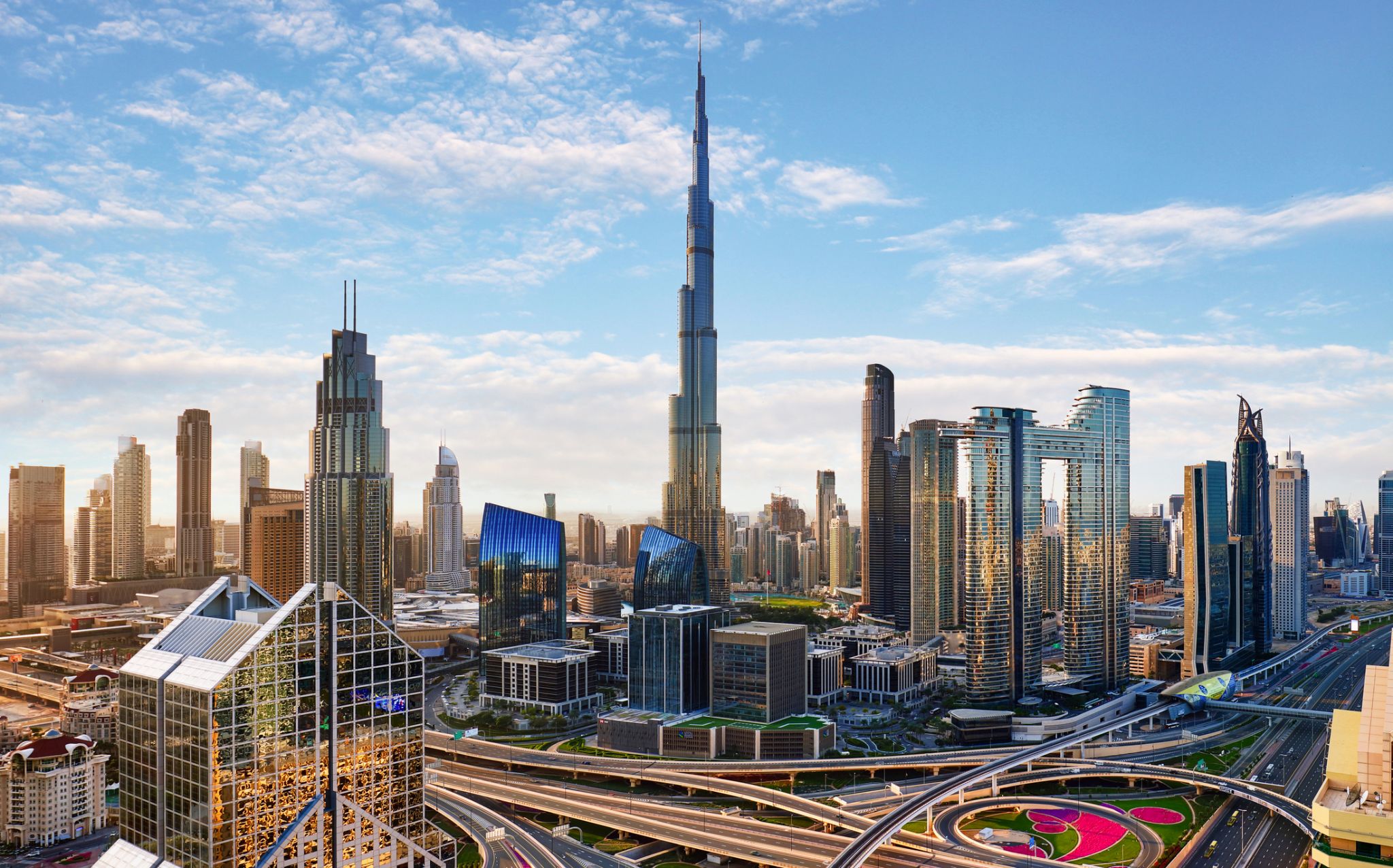
Dubai is the largest and most populous cityin the United Arab Emirates (UAE). On the southeast coast of the Persian Gulf, it is the capital of the Emirate of Dubai, one of the seven emirates that make up the country.
Dubai is a global city and business hub of the Middle East. It is also a major global transport hub for passengers and cargo. Oil revenue helped accelerate the development of the city, which was already a major mercantile hub, but Dubai's oil reserves are limited and production levels are low: today, less than 5% of the emirate's revenue comes from oil. A growing centre for regional and international trade since the early 20th century, Dubai's economy today relies on revenues from trade, tourism, aviation, real estate, and financial services.
Dubai has attracted world attention through large construction projects and sports events, in particular the world's tallest building, the Burj Khalifa. As of 2012, Dubai was the most expensive city in the Middle East. In 2014, Dubai's hotel rooms were rated as the second most expensive in the world.

Dubai is the largest and most populous cityin the United Arab Emirates (UAE). On the southeast coast of the Persian Gulf, it is the capital of the Emirate of Dubai, one of the seven emirates that make up the country.
Dubai is a global city and business hub of the Middle East. It is also a major global transport hub for passengers and cargo. Oil revenue helped accelerate the development of the city, which was already a major mercantile hub, but Dubai's oil reserves are limited and production levels are low: today, less than 5% of the emirate's revenue comes from oil. A growing centre for regional and international trade since the early 20th century, Dubai's economy today relies on revenues from trade, tourism, aviation, real estate, and financial services.
Dubai has attracted world attention through large construction projects and sports events, in particular the world's tallest building, the Burj Khalifa. As of 2012, Dubai was the most expensive city in the Middle East. In 2014, Dubai's hotel rooms were rated as the second most expensive in the world.
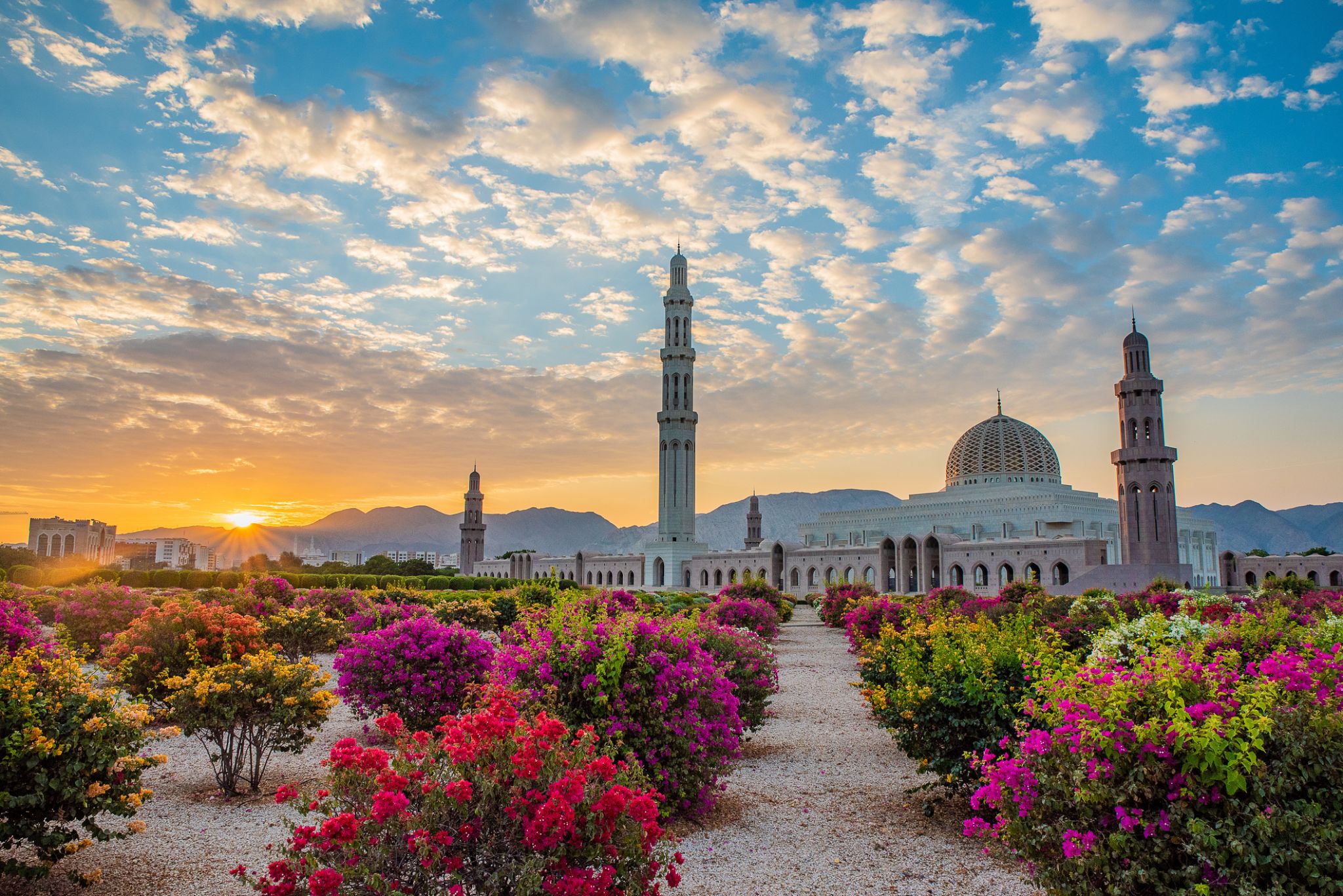
Muscat is the capital and largest city of Oman. It is the seat of the Governorate of Muscat. According to the National Centre for Statistics and Information (NCSI), the total population of Muscat Governorate reached 1.4 million as of September 2018. The metropolitan area spans approximately 3,500 km2 (1,400 sq mi) and includes six provinces called wilayats. Known since the early 1st century CE as an important trading port between the west and the east, Muscat was ruled by various indigenous tribes as well as foreign powers such as the Persians, the Portuguese Empire, the Iberian Union and the Ottoman Empire at various points in its history. A regional military power in the 18th century, Muscat's influence extended as far as East Africa and Zanzibar. As an important port-town in the Gulf of Oman, Muscat attracted foreign tradesmen and settlers such as the Persians and the Balochis. Since the ascension of Qaboos bin Said as Sultan of Oman in 1970, Muscat has experienced rapid infrastructural development that has led to the growth of a vibrant economy and a multi-ethnic society.
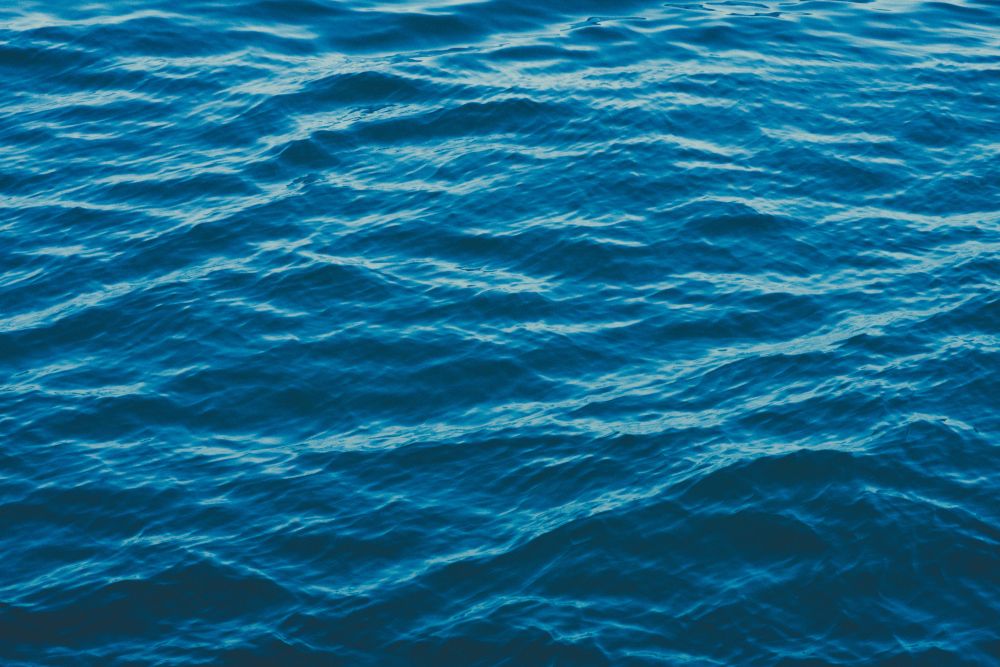



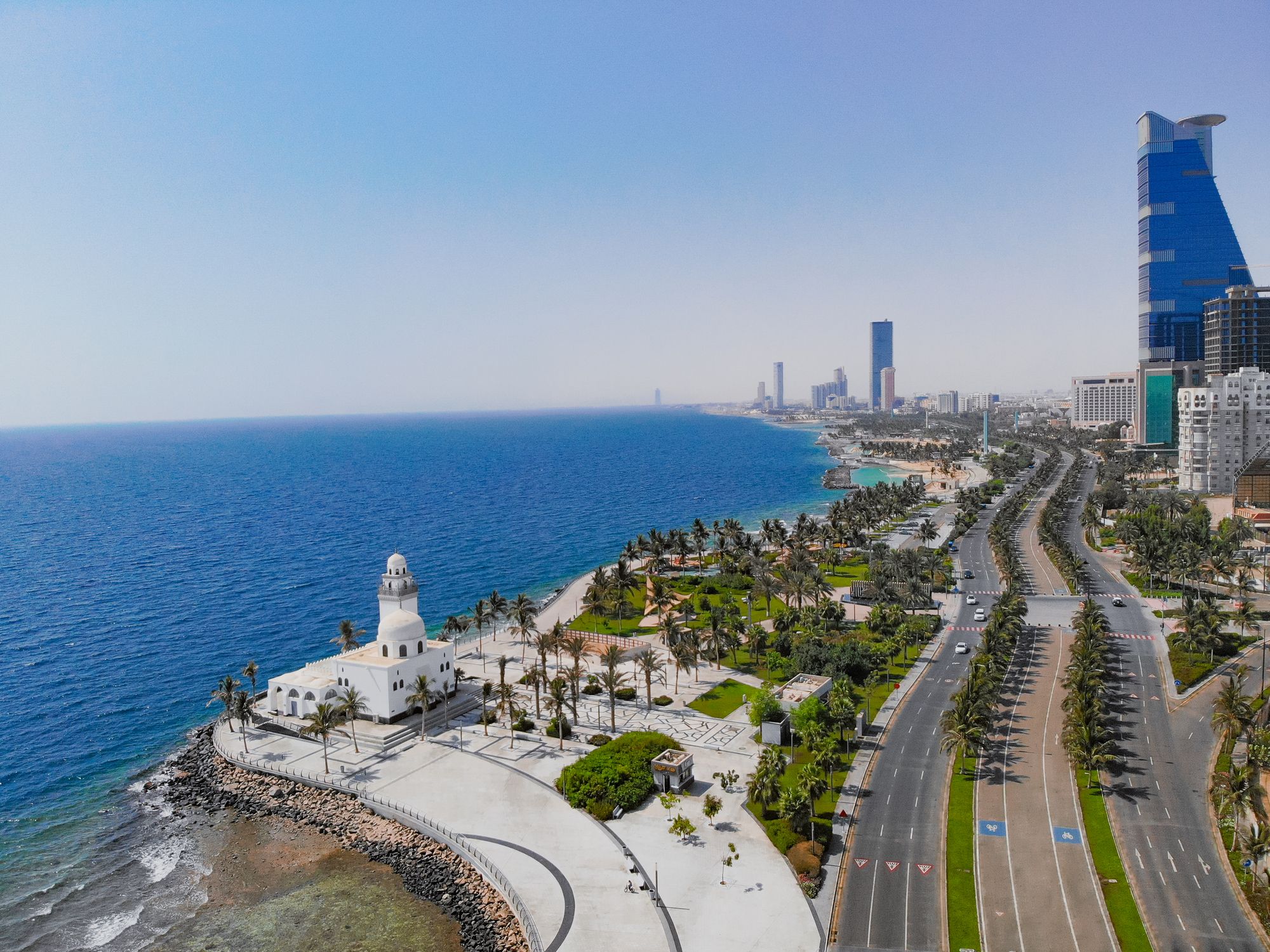
On the western coast of Saudi Arabia, where sandy dunes meet the azure waters of the Red Sea, lies Jeddah — the gateway to Mecca and a vibrant center of culture and commerce. The city impresses with its unique blend of ancient traditions and modern achievements: visitors can stroll through the historic Al-Balad district with its coral stone houses, then explore luxury malls or the striking Corniche promenade.
Jeddah is known for its cosmopolitan atmosphere and warm hospitality, welcoming pilgrims and traders from around the world for centuries. Tourists are drawn not only by the rich cultural heritage but also by the chance to dive among some of the most picturesque coral reefs in the region. The famous Floating Mosque and the King Fahd Fountain — one of the tallest in the world — have become iconic symbols of the city.

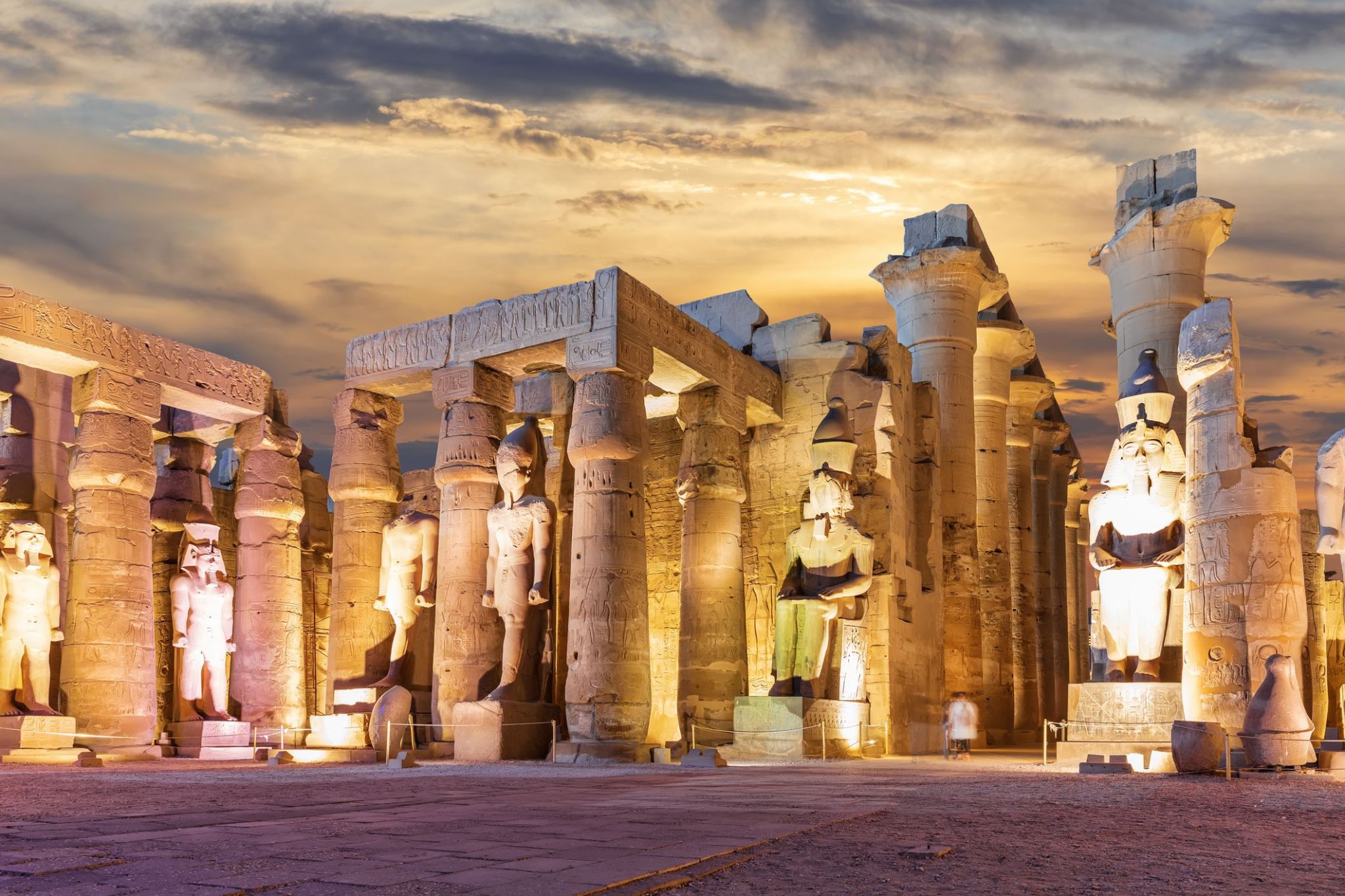
Beneath the bright Egyptian sun, Luxor stretches along both banks of the Nile — a city often referred to as the world's greatest open-air museum. Once the mighty capital of ancient Thebes, Luxor captivates visitors with its monumental sites: the Karnak Temple, the Valley of the Kings where Tutankhamun rests, and the Colossi of Memnon standing tall in silent majesty.
A walk through Luxor is not just a tour, but a true journey through time. Here, history is felt in every stone, in the shadow of towering columns, and in the calm of dawn as the sun rises over the ruins. Visitors are welcomed not only by awe-inspiring archaeology, but also by serene Nile cruises, hot-air balloon flights, and the warmth of locals who live side by side with their rich heritage.

Beneath the bright Egyptian sun, Luxor stretches along both banks of the Nile — a city often referred to as the world's greatest open-air museum. Once the mighty capital of ancient Thebes, Luxor captivates visitors with its monumental sites: the Karnak Temple, the Valley of the Kings where Tutankhamun rests, and the Colossi of Memnon standing tall in silent majesty.
A walk through Luxor is not just a tour, but a true journey through time. Here, history is felt in every stone, in the shadow of towering columns, and in the calm of dawn as the sun rises over the ruins. Visitors are welcomed not only by awe-inspiring archaeology, but also by serene Nile cruises, hot-air balloon flights, and the warmth of locals who live side by side with their rich heritage.



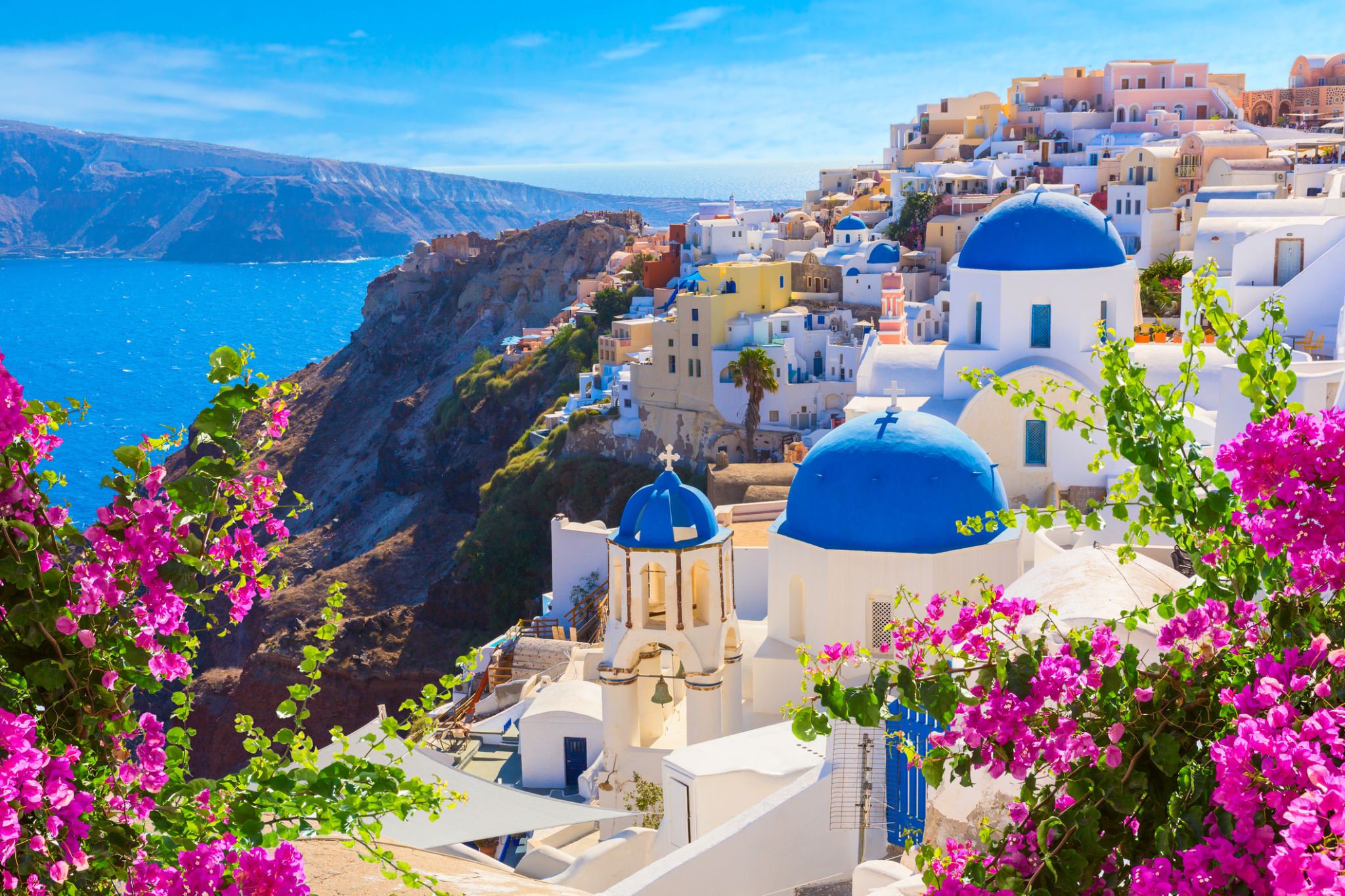
Santorini, classically Thera, and officially Thira, is an island in the southern Aegean Sea, about 200 km (120 mi) southeast of Greece's mainland. It is the largest island of a small, circular archipelago, which bears the same name and is the remnant of a volcanic caldera. It forms the southernmost member of the Cyclades group of islands, with an area of approximately 73 km2 (28 sq mi) and a 2011 census population of 15,550. The municipality of Santorini includes the inhabited islands of Santorini and Therasia and the uninhabited islands of Nea Kameni, Palaia Kameni, Aspronisi, and Christiana. The total land area is 90.623 km2 (34.990 sq mi).Santorini is part of the Thira regional unit.
The island was the site of one of the largest volcanic eruptions in recorded history: the Minoan eruption(sometimes called the Thera eruption), which occurred about 3,600 years ago at the height of the Minoan civilization. The eruption left a large caldera surrounded by volcanic ash deposits hundreds of metres deep. It may have led indirectly to the collapse of the Minoan civilization on the island of Crete, 110 km (68 mi) to the south, through a gigantic tsunami. Another popular theory holds that the Thera eruption is the source of the legend of Atlantis.
It is the most active volcanic centre in the South Aegean Volcanic Arc, though what remains today is chiefly a water-filled caldera. The volcanic arc is approximately 500 km (310 mi) long and 20 to 40 km (12 to 25 mi) wide. The region first became volcanically active around 3–4 million years ago[citation needed], though volcanism on Thera began around 2 million years ago with the extrusion of dacitic lavas from vents around the Akrotiri.

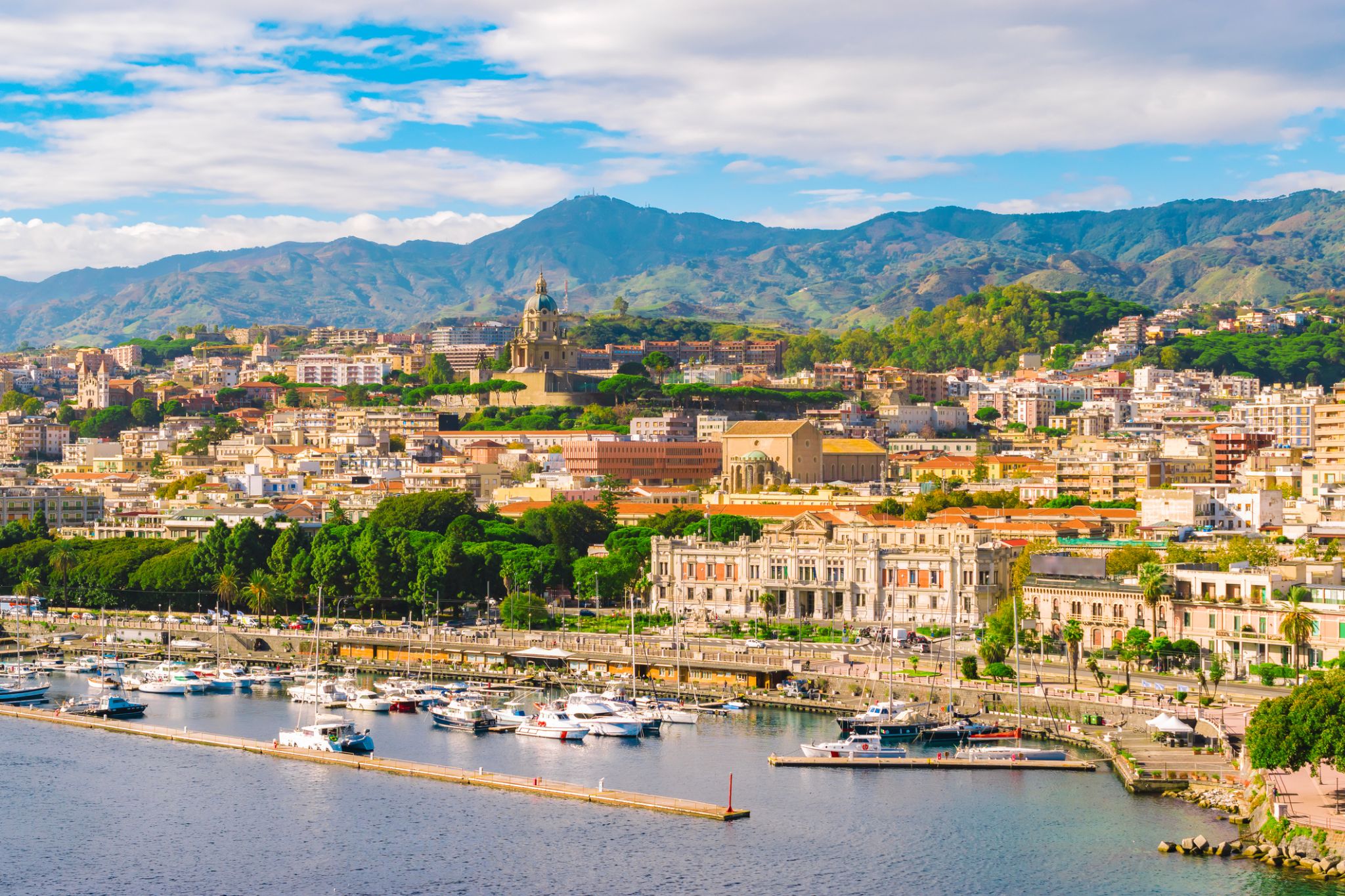
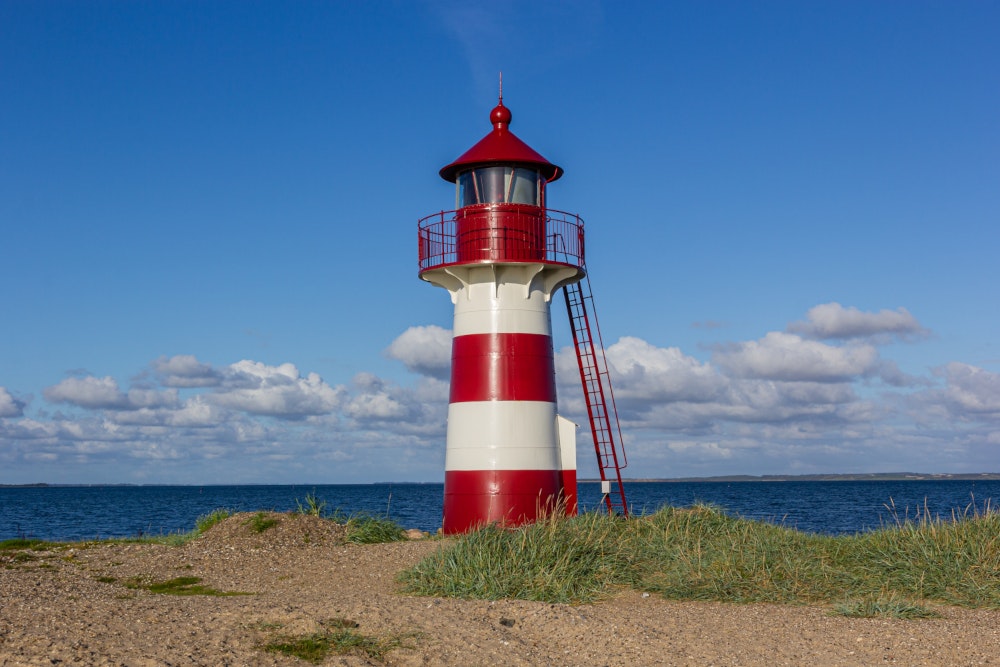

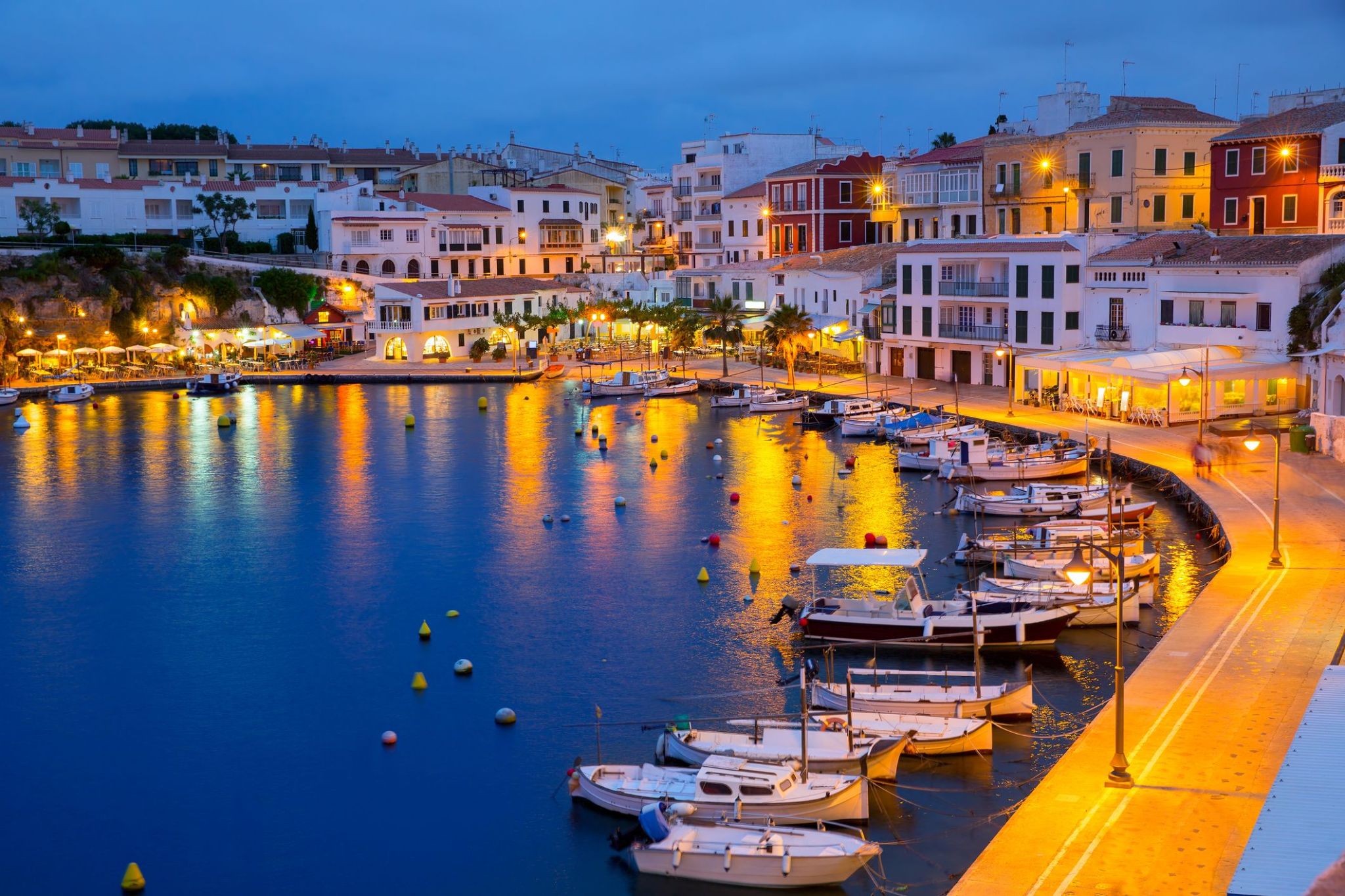
Azure waters and historic fortresses make Port of Mahon in Menorca a special place that attracts travelers from all over the world. This port is considered one of the deepest natural harbors in the world, and its length of over 5 km allows you to admire majestic landscapes from the promenades or during boat trips. Along the way, you can see elegant Georgian-style buildings that remind of the British influence on the island, as well as cozy cafes with the aroma of freshly brewed coffee and traditional Menorcan ensaimadas.
Port of Mahon offers a unique opportunity to combine a boat trip with exploring historical landmarks, including the old La Mola fortress and the small island with an 18th-century hospital, which can be reached by boat. For those who love the atmosphere of Mediterranean towns, the port offers narrow streets with artisan shops, fresh seafood in waterfront restaurants, and the sense of tranquility that Menorca gives to every guest.
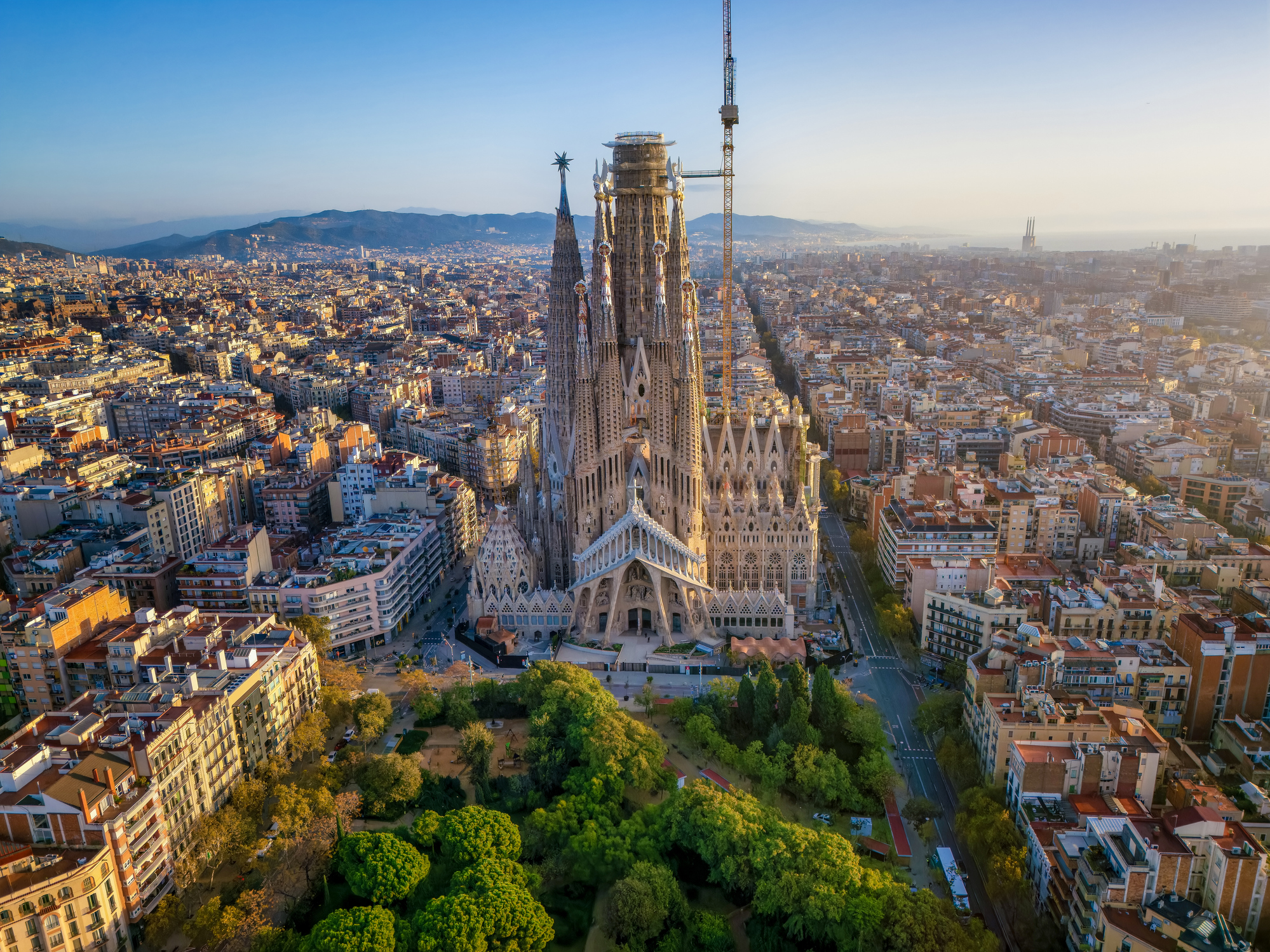
Barcelona is a city in Spain. It is the capital and largest city of Catalonia, as well as the second most populous municipality of Spain. With a population of 1.6 million within city limits, its urban area extends to numerous neighbouring municipalities within the Province of Barcelona and is home to around 4.8 million people, making it the sixth most populous urban area in the European Union after Paris, London, Madrid, the Ruhr area and Milan. It is one of the largest metropolises on the Mediterranean Sea, located on the coast between the mouths of the rivers Llobregat and Besòs, and bounded to the west by the Serra de Collserola mountain range, the tallest peak of which is 512 metres (1,680 feet) high.
Founded as a Roman city, in the Middle Ages Barcelona became the capital of the County of Barcelona. After merging with the Kingdom of Aragon, Barcelona continued to be an important city in the Crown of Aragon as an economic and administrative centre of this Crown and the capital of the Principality of Catalonia. Barcelona has a rich cultural heritage and is today an important cultural centre and a major tourist destination. Particularly renowned are the architectural works of Antoni Gaudí and Lluís Domènech i Montaner, which have been designated UNESCO World Heritage Sites. The headquarters of the Union for the Mediterranean are located in Barcelona. The city is known for hosting the 1992 Summer Olympics as well as world-class conferences and expositions and also many international sport tournaments.
Barcelona is one of the world's leading tourist, economic, trade fair and cultural centres, and its influence in commerce, education, entertainment, media, fashion, science, and the arts all contribute to its status as one of the world's major global cities. It is a major cultural and economic centre in southwestern Europe, 24th in the world (before Zürich, after Frankfurt) and a financial centre. In 2008 it was the fourth most economically powerful city by GDP in the European Union and 35th in the world with GDP amounting to €177 billion. In 2012 Barcelona had a GDP of $170 billion; and it was leading Spain in employment rate in that moment.
In 2009 the city was ranked Europe's third and one of the world's most successful as a city brand. In the same year the city was ranked Europe's fourth best city for business and fastest improving European city, with growth improved by 17% per year, and the city has been experiencing strong and renewed growth for the past three years. Since 2011 Barcelona has been a leading smart city in Europe. Barcelona is a transport hub, with the Port of Barcelona being one of Europe's principal seaports and busiest European passenger port, an international airport, Barcelona–El Prat Airport, which handles over 50 million passengers per year, an extensive motorway network, and a high-speed rail line with a link to France and the rest of Europe.